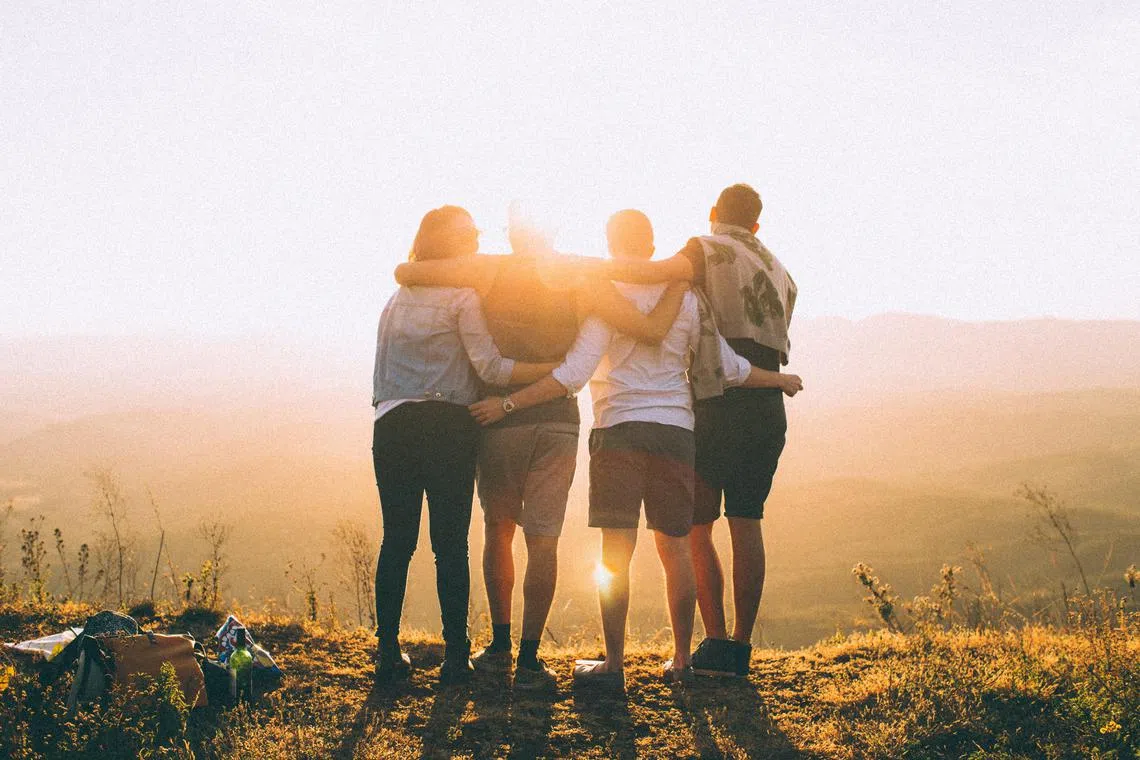For subscribers
Understand friendships to understand loneliness
There has been much focus on the benefits of friendships, but how to cultivate these powerful relationships has not been as deeply researched yet.
Sign up now: Get ST's newsletters delivered to your inbox

You feel an increased sense of familiarity with friends the longer you know them – what psychologists call the mere exposure effect.
PHOTO: UNSPLASH
The benefits of friendship go far beyond having someone to confide in or spend time with – it can also protect you from physical and mental health problems. For example, people with good friends recover more quickly from illnesses and surgery. They report higher well-being and feel like they live up to their full potential. Additionally, people with good friends report being less lonely across many life stages, including adolescence, becoming a parent and old age.
In fact, friendships are so powerful that the social pain of rejection activates the same neural pathways that physical pain does.


